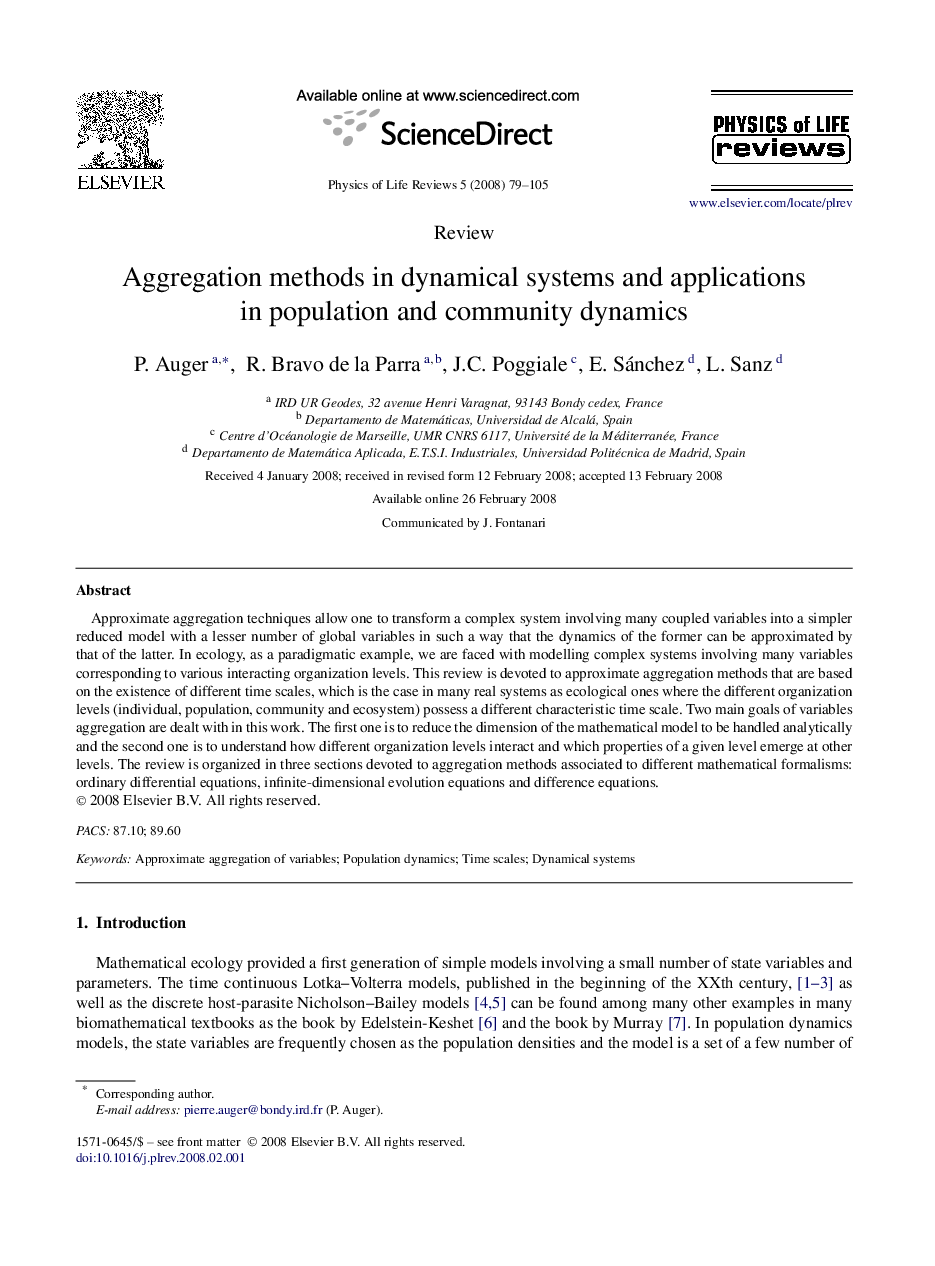| Article ID | Journal | Published Year | Pages | File Type |
|---|---|---|---|---|
| 1873059 | Physics of Life Reviews | 2008 | 27 Pages |
Approximate aggregation techniques allow one to transform a complex system involving many coupled variables into a simpler reduced model with a lesser number of global variables in such a way that the dynamics of the former can be approximated by that of the latter. In ecology, as a paradigmatic example, we are faced with modelling complex systems involving many variables corresponding to various interacting organization levels. This review is devoted to approximate aggregation methods that are based on the existence of different time scales, which is the case in many real systems as ecological ones where the different organization levels (individual, population, community and ecosystem) possess a different characteristic time scale. Two main goals of variables aggregation are dealt with in this work. The first one is to reduce the dimension of the mathematical model to be handled analytically and the second one is to understand how different organization levels interact and which properties of a given level emerge at other levels. The review is organized in three sections devoted to aggregation methods associated to different mathematical formalisms: ordinary differential equations, infinite-dimensional evolution equations and difference equations.
